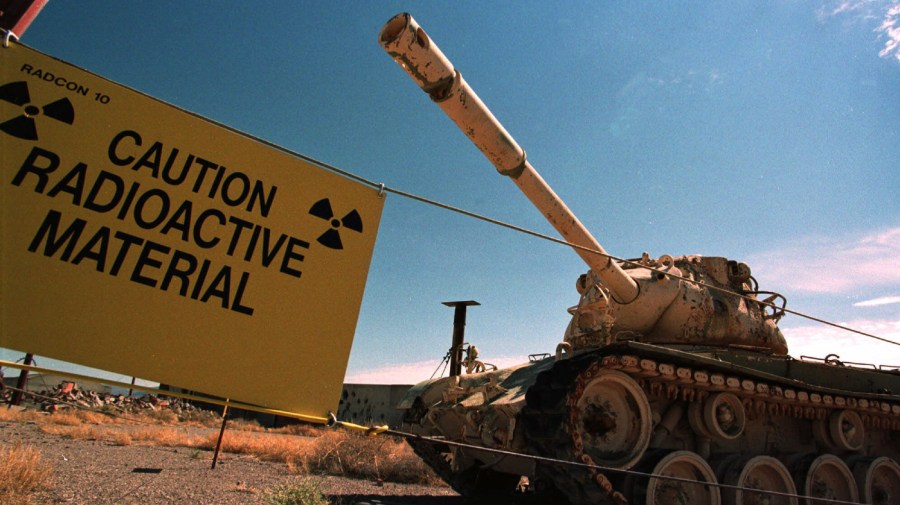The Republican megabill passed by Congress on Thursday contains an extension and expansion of a program to compensate Americans who developed cancer from radiation exposure linked to the U.S. nuclear weapons program.
The megabill revives a compensation program for victims who were exposed to this radiation that lapsed last year.
It also expands it to new areas in states including Utah, Arizona, New Mexico, Idaho and Missouri and raises compensation to $100,000 from either $50,000 or $75,000, depending on the disease.
Mary Dickson, an activist who grew up in Salt Lake City and believes her thyroid cancer came from living downwind of nuclear weapons testing in Nevada, told The Hill she expects to be eligible for compensation for the first time.
The government detonated 928 test bombs from 1951 to 1992 at the Nevada site.
“The winds blew the fallout across the country. Utah was blanketed. So we were exposed repeatedly to fallout,” Dickson said.
She said she was “crying” when the legislation passed the House, calling it “an acknowledgement that our government did this to us.”
At the same time, Dickson said, “It’s not going to bring back all the loved ones who have died,” including her sister, who died of lupus, an autoimmune disease.
The inclusion marks a victory for lawmakers including Sen. Josh Hawley (R-Mo.), who has pushed for the program’s expansion.
“To all the radiation survivors and nuclear veterans across the country: WE DID IT,” Hawley said in a post on the social platform X.
Hawley was one of the bill’s key Senate holdouts, at first saying its cuts to Medicaid went too far while its cuts to renewable energy subsidies did not go far enough.
The radiation program he fought for, known as the Radiation Exposure Compensation Act, had widespread Democratic support but was more controversial among Republicans, some of whom expressed concerns about the program’s cost.
Kyle Ann Sebastian, a spokesperson for the Union of Concerned Scientists, said that the expansion was “an incredibly important step” but was a compromise that left out other regions and states including Guam, Montana and Colorado.

